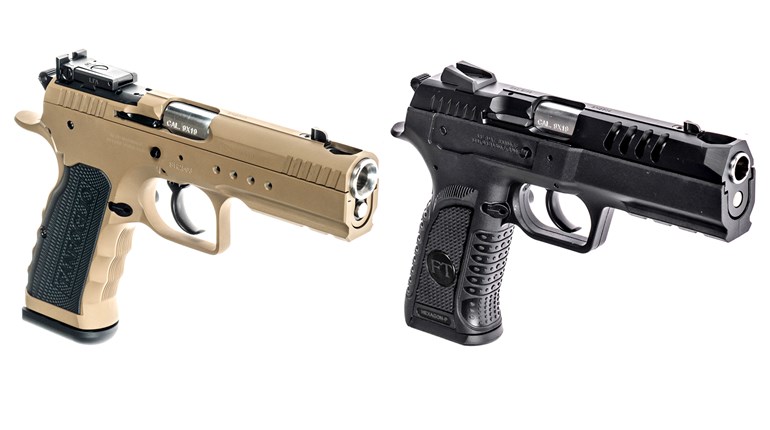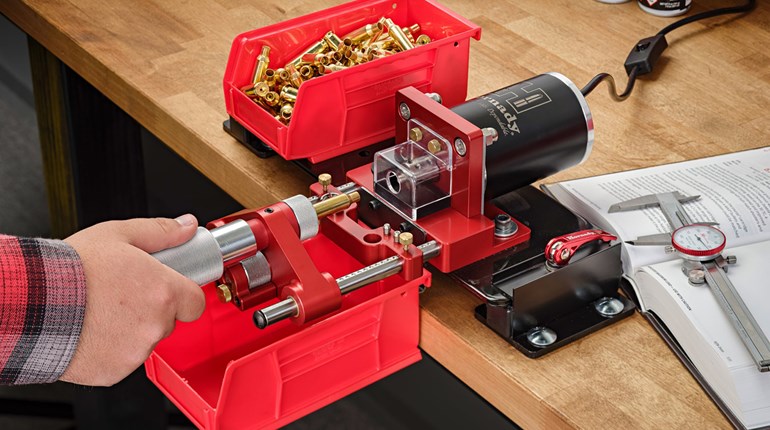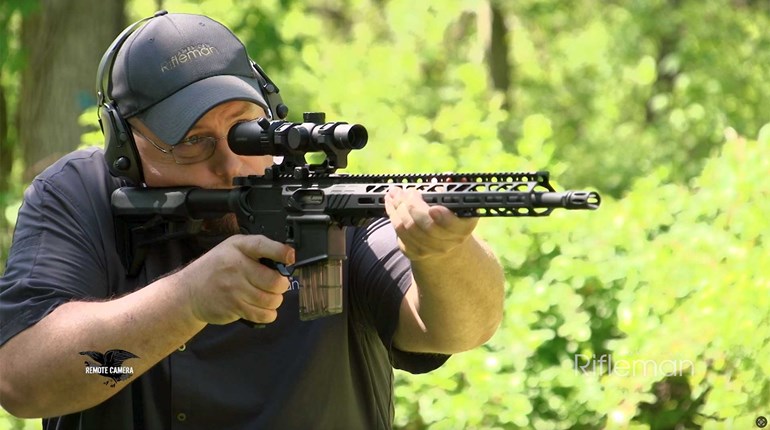

The inspiration came from FTW Ranch and I was there as Ruger unveiled its new Precision Rifle to a small group of writers. Ruger CEO Mike Fifer and some of his people had taken a long-range rifle class at FTW and came away from it believing they could build a better mousetrap–in this case, a new precision rifle. Five design and production engineers sat down at a table in Newport with their computers and notes and one year later they produced the rifle we spent three days wringing out at FTW. At first glance, you might wonder why someone would go to the trouble of converting a semi-automatic, AR-pattern rifle to bolt-action, but you would be wrong. While the Ruger Precision Rifle (RPR) bears some resemblance to an AR, and even uses some AR parts, the two rifles are entirely different. What you might think of as the lower receiver are actually two halves bolted together for the purpose of containing the Ruger Marksman adjustable trigger and a patented universal magazine-latch mechanism. This allows the use of a wide range of both side- and rear-catch magazines. The upper receiver, the serial numbered part, is precision-CNC machined from a chrome/molly alloy steel and contains a bolt based on the one used in the Ruger American Rifle. A shroud at the rear of the bolt contains a wrench used to adjust the trigger through a range of 2.25 to 5 pounds. The medium-contour, cold-hammer-forged barrel has Ruger 5R rifling, minimum headspace, a centralized chamber and is threaded 5⁄8 -24 at the muzzle for the addition of brakes, flash hiders and suppressors.


The barrel is freefloated, can be replaced using AR-style wrenches and is covered by a Samson Evolution KeyMod rail fore-end. The fore-end, like the safety, pistol grip and stock can be interchanged with standard AR parts. The stock supplied with the rifle is adjustable for comb height and length-of-pull and can be canted left or right, and has a soft-rubber recoil pad. Like an AR, the bolt retracts into the stock tube when it is pulled to the rear but, unlike an AR, the upper part of the receiver doesn’t separate from the lower and this might lead you to wonder how to remove the bolt or clean the barrel. The mystery is solved by means of a catch on the left side just forward of the stock tube that unlatches the stock and allows it to be folded to the left. Another catch releases the bolt and this is all the disassembly needed to clean the rifle. Folding the stock makes the rifle considerably shorter and I found it fits in a case designed for a 16-inch-barreled AR. Ruger ships the rifle with two of the excellent Magpul P-Mag 10-round magazines. The rifle is designed to use any of the M110/SR25/DPMS/Magpul and AICS .308 Win. magazines by means of the dual locking magazine catch and, although some AR-10 or M14/M1A magazines may work as well, Ruger doesn’t guarantee it because of the many variations and origins of these magazines over the years.

Ruger equipped the rifles we shot at FTW with the Burris XTR II 4-20 x 50 mm scope with a 34 mm main tube and illuminated front focal plane G2B Mil-Dot reticle that proved to be an excellent match for the rifle. Mounted on the 20-MOA Picatinny rail and with an initial 100-yard zero, I discovered I had enough elevation in the scope to get on target all the way out to 1,400 yards. All of our rifles were chambered in 6.5 Creedmoor and equipped with 24-inch barrels with 1:8-inch twists. This being my first experience with the 6.5 Creedmoor I was impressed with the long-range characteristics and accuracy of the Hornady 140-grain A-Max Match ammunition we used throughout the FTW event. When we were preparing to leave FTW, the folks from Ruger offered to ship us new rifles for further testing or send us the rifles we had been shooting. I asked for “my” rifle as it was dialed in. Arriving home I ordered ammunition, then shot the rifle for accuracy over several range sessions on Gunsite’s York Range as the ammo arrived. Accuracy results are listed in the attached table.

The RPR is available in .308 Win. and .243 Win. as well as 6.5 Creedmoor. With a suggested retail price of $1,399, and a street price two or three hundred dollars less, this rifle is a game-changer in the precision-rifle field. Ruger has produced an affordable, very accurate rifle loaded with features that should encourage more shooters to undertake long-range shooting efforts.





































